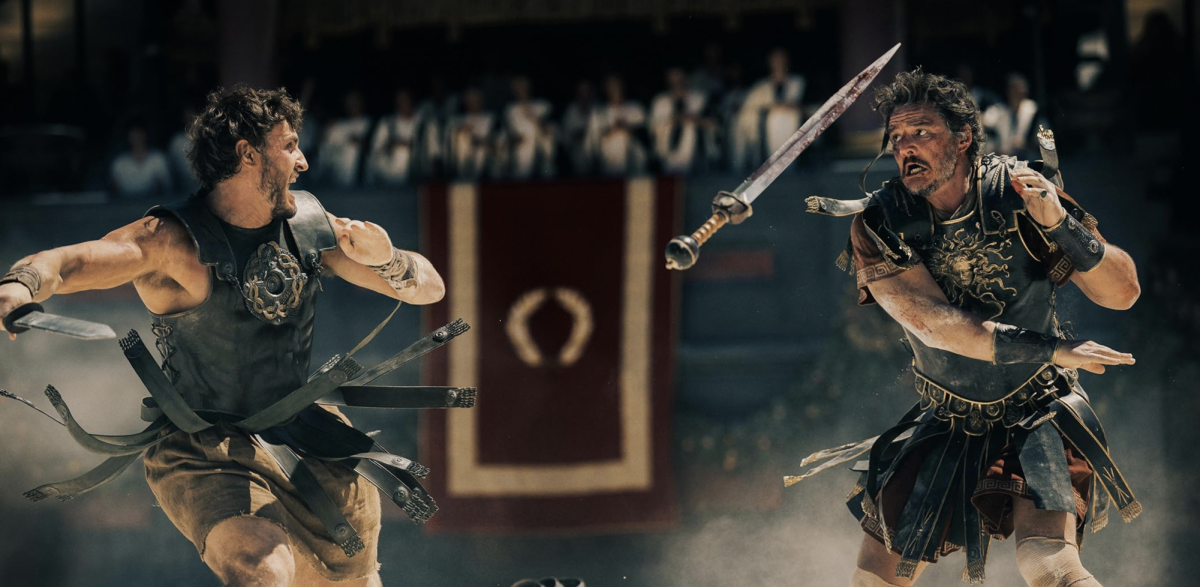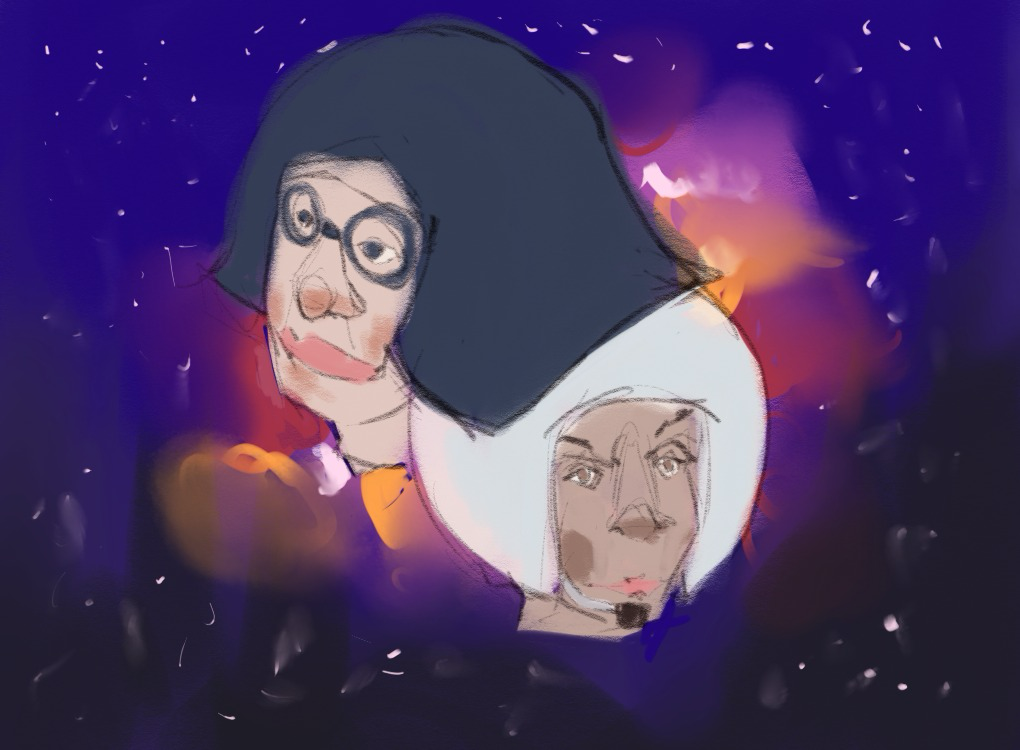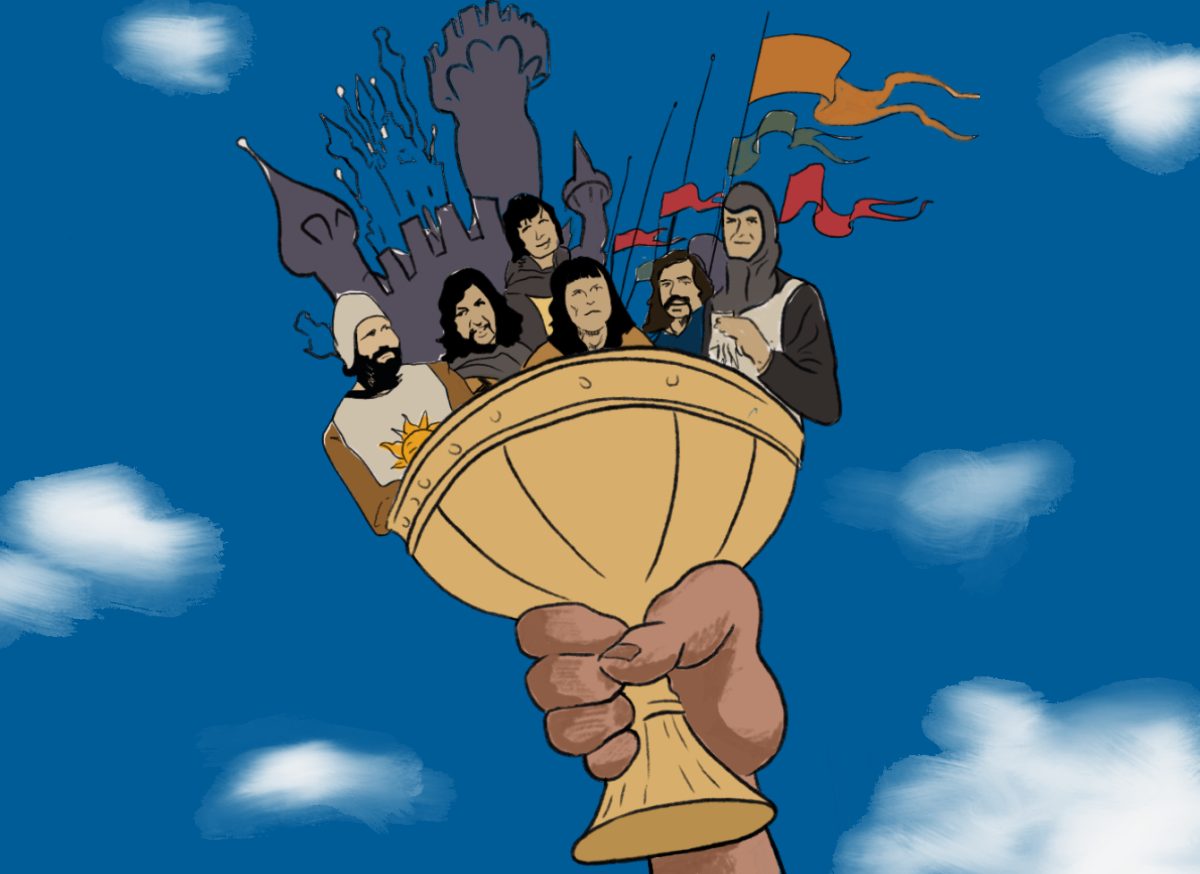
Spoiler alert: spoilers ahead for “Gladiator” and “Gladiator II.”
I distinctly remember the first time I experienced “Gladiator.” It was the first movie I ever watched in which the main character dies at the end.
At just 12 years old, I gazed in awe at my television screen as Maximus Decimus Meridius sacrificed his life in service of a greater purpose. On a quest for revenge, Maximus had learned to use the spectacle of violence against its perpetrator, the sadistic Emperor Commodus, paving the way for a better future for Rome. And I, like Lucius, the main protagonist of “Gladiator II” who was also roughly 12 when he watched Maximus die, “never forgot it.”
Given my adoration for “Gladiator,” I was heartbroken to discover that “Gladiator II” is little more than an emotionally hollow legacy sequel that fails to justify its own existence and falls far short of the standard set by its forebear.
Released on Nov. 22 and directed by Ridley Scott, “Gladiator II” depicts the blood-soaked journey of Lucius Verus Aurelius (Paul Mescal), the forgotten prince of Rome. Living an idyllic, pastoral life with his wife in the African kingdom of Numidia 25 years after witnessing Maximus’s death, Lucius finds his tranquil existence disrupted when the Roman army attacks his village, inciting a battle during which Lucius’s wife is killed.
Captured and brought to the Colosseum as a gladiator after impressing the businessman Macrinus (Denzel Washington), an enraged Lucius fights to exact vengeance upon those responsible for his wife’s demise. However, he soon becomes involved in a conspiracy to rescue Rome from the tyranny of its twin emperors, Geta (Joseph Quinn) and Caracalla (Fred Hechinger).
Lucius represents the one redeeming quality of this misguided sequel. Mescal delivers an admirable turn as the lost Roman prince, bringing physical intensity to every sword fight while simultaneously infusing grins with a world-weary charm that elevates his often clunky dialogue.
While Lucius exhibits many of Maximus’s traits — such as a reluctance to accede to wanton violence and a sense of duty towards Rome’s smallfolk — he trades Maximus’s single-minded desire for vengeance for a flexible worldview. Yet he also shows a level of wrath that Maximus (who, as revealed in a trailer, was Lucius’s biological father) never displayed. The nuanced development of Lucius as an independent figure who still shows some flashes of his father’s personality serves as perhaps the only strong aspect of the screenplay.
Unfortunately, the film’s script disappoints in nearly every other way. Gone are the memorable quotes of its predecessor — indeed, we will never again hear the likes of “What we do in life, echoes in eternity!”— as they are replaced by nonsensical sentences that disrupt conservations and seem as though they were shoehorned into the script merely because they sound “slick.” For example, lines like “To restore order, I must have power!” seem as though they were inserted into the script by a 15-year-old “Gladiator” enthusiast rather than a professional screenwriter.
The screenplay also fails to develop the film’s numerous side characters, instead sliding into rote characterizations that often ape previous works.
The twin emperors, Geta and Caracalla, are merely slightly modified — and less nuanced — reproductions of “Game of Thrones” Joffrey Baratheon, despite committed performances from Quinn and Hechinger, respectively. Despite his important role in the first film, the once-compelling Senator Gracchus (Derek Jacobi) merely delivers a few boringly obvious lines and then perishes ignobly. The script especially mishandles Acacius (Pedro Pascal), as it settles upon a frustratingly one-dimensional characterization after ostensibly establishing the foundation for a complex moral compass.
Often, when an action film exhibits screenplay deficiencies, the audience can turn to its technical proficiencies for enjoyment. This option is not available for “Gladiator II.”
Every frame of Scott’s film seems desperate to convey the grandiosity of Rome, precluding the covert character conversations and intense scenes of political intrigue from displaying any intimacy. Rome, meanwhile, loses its luster thanks to a muted color palette — apart from the film’s final shot — and subpar CGI.
For every somewhat entertaining battle sequence — the best of which spotlight hand-to-hand combat — the tendency toward 15-year-old “Gladiator” enthusiast rears its ugly head, generating moments of absurdity such as great white sharks inexplicably appearing in the Colosseum during a naval battle or a gladiator riding a rhinoceros. These battles are further undermined by a frustrating lack of stakes: Since no character (except, perhaps, Lucius) receives any significant development, no tension is felt when said characters’ lives are threatened.
Ultimately, it is difficult to think of “Gladiator II” as anything other than an unnecessary extension of a beautiful story. Unfortunately, given Hollywood’s obsession with legacy sequels, we can expect many more misguided attempts at cinematic follow-ups to populate theaters indefinitely. Look at the recent announcement of “Gladiator III” if you don’t believe me.













